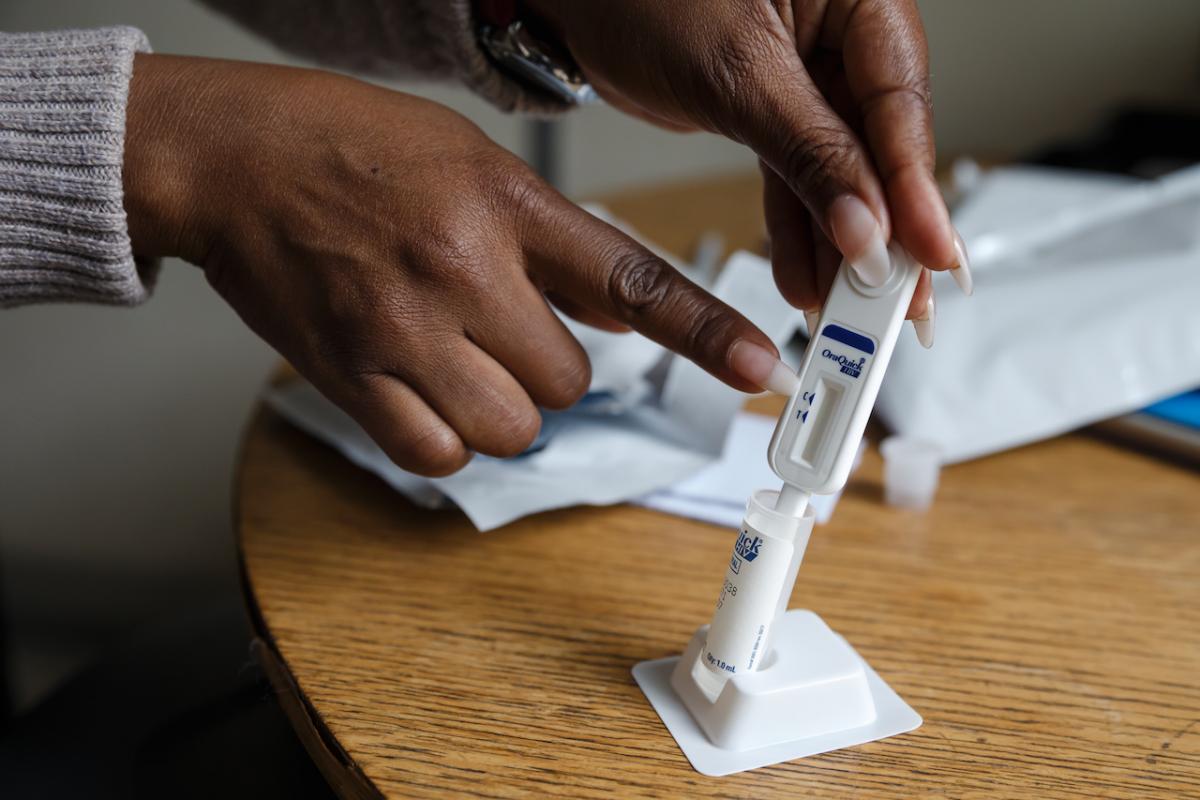In the realm of public health, empowerment lies at the heart of effective prevention and treatment strategies. When it comes to HIV/AIDS, access to testing and counseling services plays a pivotal role in curbing the spread of the virus and ensuring those affected receive the care they need. In recent years, HIV self-testing has emerged as a powerful tool in this fight, offering individuals greater autonomy over their health while breaking down barriers to testing. Let’s explore the importance of HIV self-testing and how organizations like the Afro-Canadian Positive Network of BC are leading the charge in providing crucial support services.
The Power of HIV Self-Testing
HIV self-testing involves individuals performing an HIV test themselves, usually using a saliva or blood sample, in the privacy of their own homes. This approach offers several key advantages:
Privacy and Confidentiality: Many individuals may hesitate to get tested for HIV due to fear of stigma or discrimination. Self-testing allows people to conduct the test in a setting where they feel comfortable and secure, reducing the barriers to accessing testing services.
Convenience: Traditional HIV testing often requires scheduling appointments at clinics or healthcare facilities, which can be time-consuming and inconvenient. Self-testing kits are readily available over-the-counter or through community organizations, enabling individuals to test at their own convenience.
Rapid Results: With self-testing, results are typically available within minutes, providing immediate feedback and reducing the anxiety associated with waiting for test results.
Empowerment: By taking control of their own testing process, individuals are empowered to prioritize their health and make informed decisions about their sexual health.
The Role of Pre- and Post-Counseling
While HIV self-testing offers numerous benefits, it’s essential to emphasize the importance of pre and post-counseling services. Pre-counseling helps individuals understand the testing process, assess their risk factors, and address any concerns they may have. Post-counseling provides support and guidance in interpreting test results, accessing follow-up care, and navigating emotional reactions.

Afro-Canadian Positive Network of BC: A Beacon of Support
In British Columbia, the Afro-Canadian Positive Network (ACPNet) is at the forefront of providing HIV/AIDS support services to the Afro-Canadian community. Based in Burnaby, ACPNet is committed to promoting HIV awareness, prevention, and support through various programs and initiatives. One such initiative is their provision of pre and post- test discussion services for HIV self-testing.
At our office in Burnaby, we offer a welcoming and culturally sensitive environment where individuals can receive confidential chat before and after self-testing. Trained peer supporters provide personalized support addressing concerns, providing accurate information, and connecting individuals with additional resources as needed. This holistic approach ensures that individuals not only have access to testing but also receive the support they need to navigate the testing process and its implications.
Conclusion
In the fight against HIV/AIDS, empowerment and accessibility are paramount. HIV self-testing represents a significant step forward in expanding access to testing services and empowering individuals to take control of their health. Organizations like the Afro-Canadian Positive Network of BC are invaluable allies in this endeavor, providing essential support services and fostering a culture of health and resilience within their communities. By working together and embracing innovative approaches to testing and counseling, we can move closer to achieving our goal of an HIV-free future.
Written by Jean Nsengiyumva


